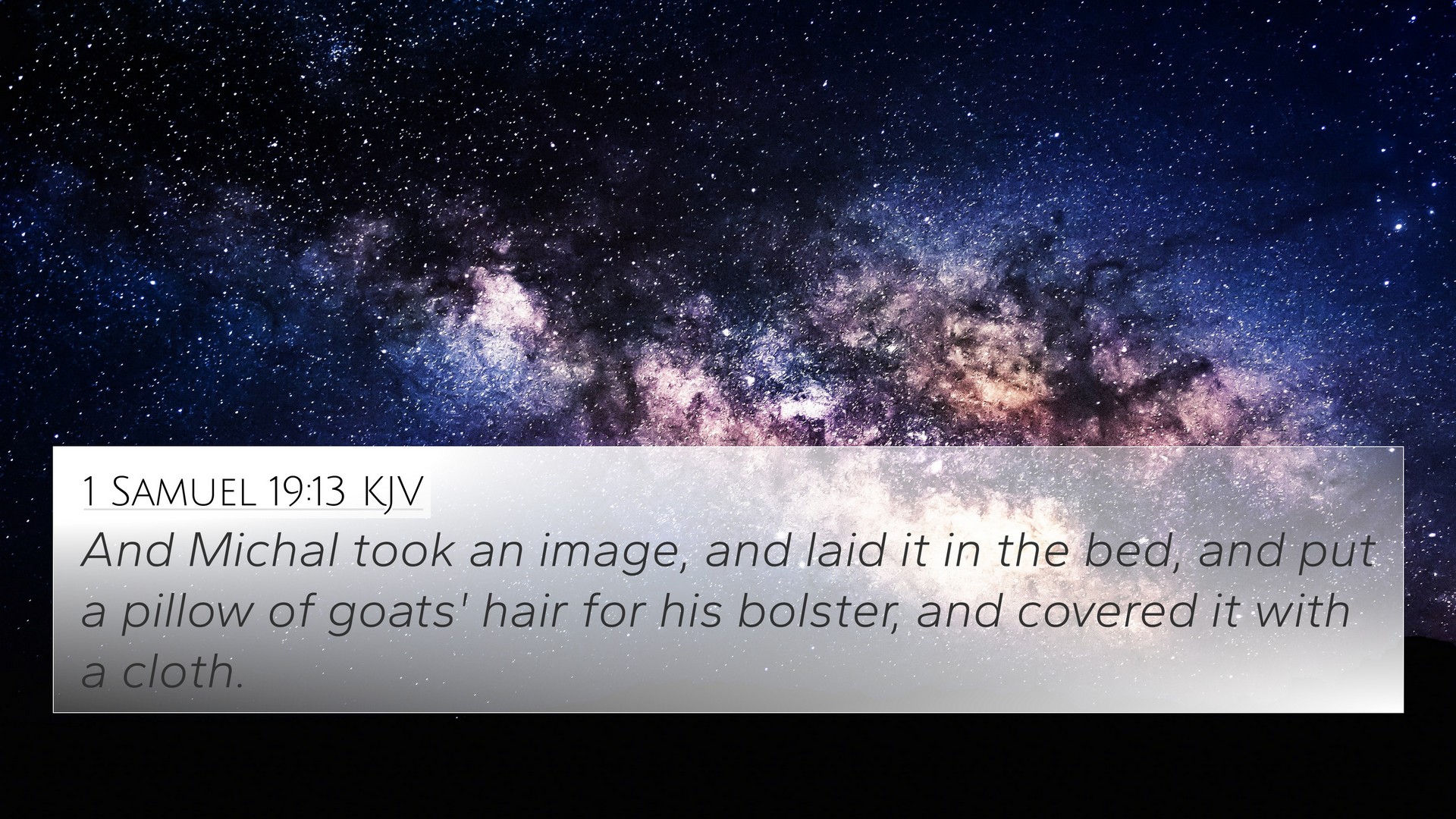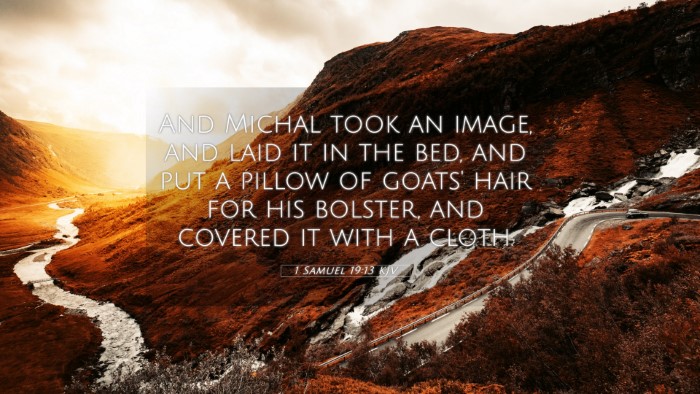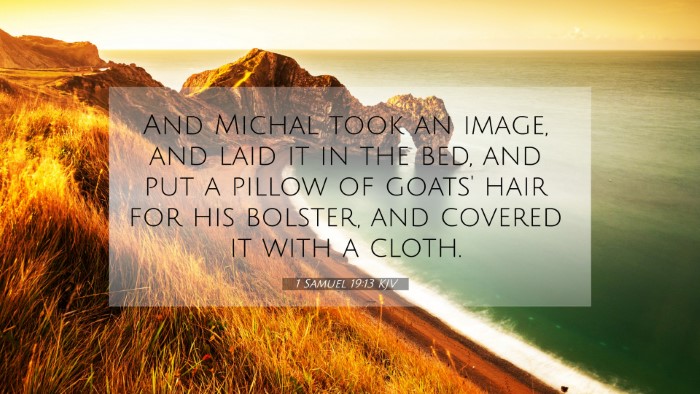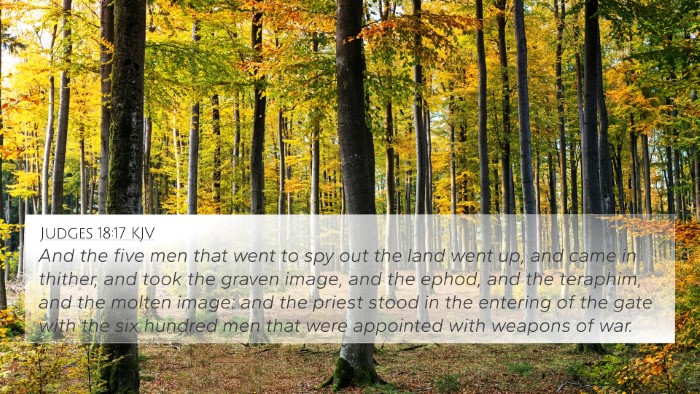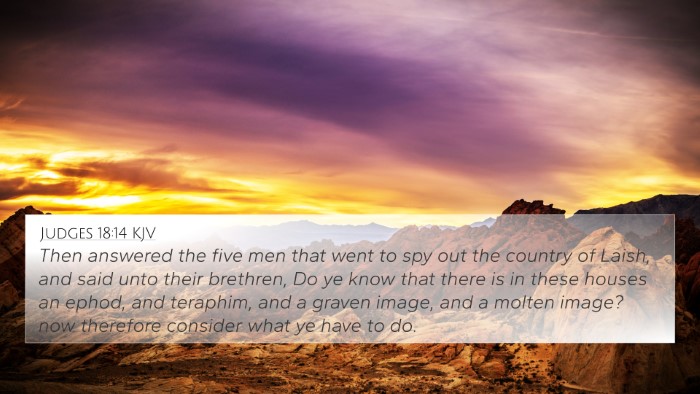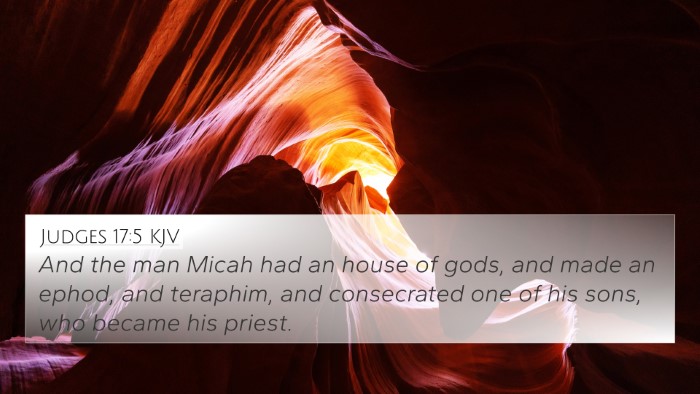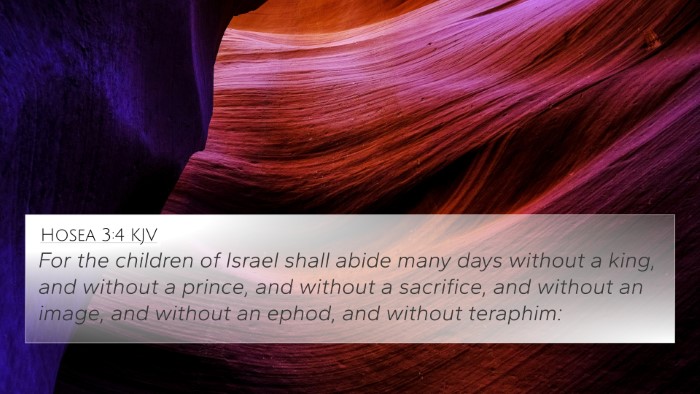Understanding 1 Samuel 19:13
Verse: "And Michal took the teraphim, and laid it in the bed, and put a pillow of goats’ hair for his bolster, and covered it with a cloth."
Summary of Meaning
This verse presents a critical moment in the narrative of King David's life, highlighting themes of loyalty, deception, and protection. Michal, David's wife, shows great resourcefulness and courage as she aids David in evading capture from her father, King Saul. By creating a false impression of David's presence in their bed, she exemplifies the lengths to which one may go to protect loved ones from peril.
Commentary Insights
- Matthew Henry: Henry elaborates on the courage of Michal, emphasizing her loyalty to David over her father Saul. He interprets this act not just as deception but as a testament to their bond. Henry comments on the symbolism of the teraphim, which might represent idolatry, pointing out the moral complexities in Michal's actions.
- Albert Barnes: Barnes highlights the significance of the teraphim in the bed. He notes that this act of deception was strategic, illustrating that Michal took great care to arrange the scene so that Saul's men would believe David was ill and unable to be taken. Barnes also reflects on the broader implications of familial loyalty set against royal duty, suggesting a profound conflict in Michal's identity.
- Adam Clarke: Clarke focuses on the cultural aspects of the time, discussing the role of women and their agency within the constraints of their society. He notes Michal's quick thinking in employing a physical object to mask David's absence, underlining the tension between familial loyalty and the vast power of Saul, her father.
Cross-References
1 Samuel 19:13 has several related verses that help provide deeper understanding:
- 1 Samuel 19:12: Highlights Michal's immediate action to warn David of the impending danger.
- 1 Samuel 18:20: Michal's love for David and her initial resistance against her father Saul.
- 1 Samuel 20:30-33: Further discusses the tensions in the family dynamics introduced by Saul's ire towards David.
- Proverbs 18:22: Illustrates the value of finding a good spouse, paralleling Michal's role as David's protector.
- Psalm 59:1-2: Reflects David's pleas for deliverance from enemies, similar to his plight in this narrative.
- Jeremiah 9:4: Discusses betrayals within families, akin to the betrayal David might feel from Saul.
- Luke 14:26: Jesus discusses the cost of discipleship, echoing the theme of loyalty that Michal shows towards David over her father.
Thematic Connections
The events of 1 Samuel 19:13 connect to broader themes in Scripture involving loyalty, deception, and familial strife. These biblical themes often interlace throughout various narratives, demonstrating the complexities of human relationships in the face of divine purpose and authority.
Tools for Bible Cross-Referencing
To explore cross-references effectively, consider utilizing:
- Bible Concordances: Tools that help locate verses and themes across the Bible.
- Bible Cross-Reference Guides: Resources that can assist you in finding connected verses.
- Cross-Reference Bible Study: Methodologies for engaging deeply with Scripture through cross-referencing.
- Bible Chain References: A method to trace thematic connections throughout the Bible.
- Comprehensive Bible Cross-Reference Materials: Collection of resources that aids in understanding the relationships between various verses.
Inter-Biblical Dialogue
The narrative found in 1 Samuel prompts reflections on the New Testament, especially in how the theme of betrayal and loyalty manifests through the actions of characters in the Gospels, wherein followers face similar trials of commitment and integrity.
Conclusion
1 Samuel 19:13 encapsulates a crucial point in the story of David, rich with implications about loyalty and courage. By examining related scriptures and utilizing cross-referencing tools, one can gain a comprehensive understanding of the complexities of loyalty against the broader backdrop of Scripture.
